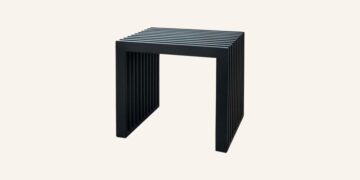Choosing an apartment is not an easy task and you should definitely not make such a decision lightly. Check what needs to be considered both before starting the search for the perfect apartment and before buying it. Most people are faced with a dilemma of buying an apartment or opting for a house instead. If you ignore the financial issues, there are some significant advantages and disadvantages to betting on a house or apartment.
| Property type | House | Apartment |
| Benefits | Garden, more space, no neighbors behind the wall, no possibility of making changes. | No need to deal with maintenance, no need to take care of the garden, theoretically more security. |
| For whom? | For people who appreciate the possibility of going out to the garden and a slightly larger living space. | For people who want to avoid extra housekeeping work. |
The apartment will be simply more comfortable, because you will not have additional tasks such as taking care of the maintenance of the house or gardening. In addition, apartments are often located high and offer very attractive views compared to houses that are currently being built by developers very close to each other.
Here are practical tips on how to choose a good apartment.
1. Buying a property from a reputable builder
Reputable developers tend to have good experience and a steady success rate. By checking their ground report, you’ll also realize that most of their projects are registered with the authorities. In addition, most established construction companies are members of industry associations. Don’t forget the best home buying tips that give you the added benefit of the modern amenities that come with buying projects from established real estate companies.
2. Legal check of the property
Before signing the final contract, make sure that your apartment is legally authorized and has the right to stand on the plot. As a home buyer, there is nothing wrong with checking that the developer has approvals, in addition to other land use authorities for water, sewage, electricity, etc. However, if you have taken out a home loan, your property documents are already checked when sanctioning the loan. A certified builder will be professional in their approach and will have quality controls and legalization under control – this will serve as a valued quality certificate.
3. Location
Property selection near shopping and entertainment centers, IT parks, schools, colleges, grocery stores, hospitals, shopping malls, parks, theaters, etc. plays a key role in home buying. Moreover, the location of the property affects not only the market value of the property, but also your standard of living. Apartments in high-end residential neighborhoods provide good connectivity and security against market volatility. In addition, the local infrastructure around a property plays a vital role in determining its future and present market value. The higher return on investment therefore depends largely on the location of the property.
4. Know the difference between a carpet area and a built-up area
The super built-in area that is usually mentioned in brochures includes the staircase, wall thickness, elevator area, hall, etc. The actual area of carpets in an apartment is therefore almost 30% smaller than super-built-in area. Please check the details of the area before booking so you don’t get surprised. It is worth taking this into account when choosing an apartment at the beginning, so that you do not think about it or regret your decision.
5. Affordability
Choosing a house type based on your budget, comparing property prices from different manufacturers are some of the main steps to start with. You can make a comparison by viewing real estate offers from portals and newspapers or through brokers. Also, keep these home buying tips in mind to highlight volatile bid price movements, which also give you an idea of housing trends in the specific areas you are interested in. Perfect locations, as the price of the property will largely reflect your standard of living, choose the perfect mix of price and quality.
6. Consider your lifestyle
Do you hate mowing your lawn and trimming hedges? What about pressure washing the driveway? Are your finances such that it will be a burden to spend $5,000 or more on a new roof? If you answered yes to these questions, living in an apartment may be for you. Consider:
- How are you living?
- What suits you best on a daily basis?
- What space will be comfortable for you?
- Is the area you live in right for you?
- Do you have close proximity to the places of interest?
These are just a few things you need to consider. For example, if the desire to have a large yard outweighs the time needed to maintain it, a different type of property may be a better solution. Likewise, if sharing walls, ceilings, or floors with a neighbor seems unattractive, housing – which literally means living on top of your neighbors – may not be the answer. Condos seem to work best for those who are comfortable with most aspects of living in an apartment without built-in maintenance.
7. Find an estate agent who knows the housing landscape
If you’ve decided that buying an apartment is right for you, you’ll want to find a real estate agent who will have your best interests in mind. Ideally, someone with housing experience should live so they can resolve any concerns you may have and guide you through key steps such as reviewing housing association documents. A good real estate agent will make you:
- It will be easier for you to choose a convenient location.
- You will have faster access to attractive housing.
- The real estate agent will discuss all formalities.
- You will have access to an advisor at all times.
It’s all very useful stuff. Importantly, however, your agent should know the housing development in your area and what problems they may be having. Things that can adversely affect your apartment life may include community financial problems and problems with structure or infrastructure in the community building or buildings, or rules that you may not be able to follow.
8. Amenities
The apartment may offer a variety of amenities. Some may be skeletal offerings that simply include snow removal and other maintenance in communal areas, while others include a gym, outdoor grills, and other luxury amenities. When working with your real estate broker, take care of the amenities you want in addition to factors like location and budget.
You buy access to these perks by purchasing a unit, so don’t be shy to wishlist them. Also, keep in mind that amenities you don’t plan on using – a swimming pool for example – may still be worth owning as when you go on sale an apartment without other people’s amenities in the area could bring you a lower sale price.
9. Find an approved apartment by financial authorities
Getting a home mortgage can be more complicated than other types of real estate. This is because the housing development itself will be analyzed, in addition to your personal finances, when you apply for a loan. It’s best to get the help of a mortgage specialist with condo experience to find the right financing for your purchase.
10. Research the property management company
Understanding who will be responsible for maintaining your property is critical as you want the apartment you buy to be well looked after. Paying association dues can be frustrating just to ruin your amenities, and mismanagement can potentially affect the value of your property or raise your homeowner association contributions. As you explore the apartment, ask who is responsible for maintaining day-to-day operations.
You can direct questions, such as who is handling residents’ requests and community policies, to the property management company itself. Also consider doing your own reputation research – find out what other projects they are managing and speak to board members to see if they are satisfied with the company’s services.


































































































































































































